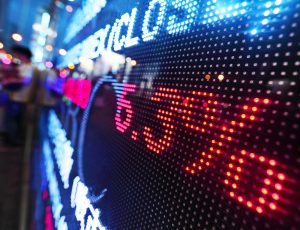 The biggest bank in the United States by assets, JPMorgan Chase is on the hunt for regulatory approval in China as it seeks to unveil a new brokerage. This comes after restrictions placed on financial firms with regards to ownership were relaxed. If it succeeds this will be JPMorgan Chase’s second attempt to get a major foothold in the second largest economy in the world. In later 2016 JPMorgan Chase was forced to get out of venture where it held a 33% interest.
The biggest bank in the United States by assets, JPMorgan Chase is on the hunt for regulatory approval in China as it seeks to unveil a new brokerage. This comes after restrictions placed on financial firms with regards to ownership were relaxed. If it succeeds this will be JPMorgan Chase’s second attempt to get a major foothold in the second largest economy in the world. In later 2016 JPMorgan Chase was forced to get out of venture where it held a 33% interest.
Securities regulators in China confirmed that an application by JPMorgan Chase had been received. It is understood that JPMorgan will possess a stake of 51% in the joint venture it is seeking to establish. No information was immediately available with regards to how long it will take before the process is approved.
Change in rules
Other international banks that have applied to operate in China after the change in rules include Japan’s Nomura and Switzerland’s UBS. With the joint venture JPMorgan will be in a position of trading bonds, stocks as well as other assets for local clients.
The capital markets of China are a lucrative opportunity for international banks. However it has been pointed out by experts that even though the ownership rules have changed, international firms will still not find it easy competing with local players who are well established as well as navigating the regulations in the country. Hong Kong-based HSBC has for instance built a large presence in China making it formidable.
Uncompetitive businesses
Prior to the change in rules the maximum stake that foreign banks were allowed to own in a joint venture with a Chinese bank was 49%. U.S. firms had for a long time complained about this.
“A lot of these [joint ventures] are hard to govern, badly run, not very successful and don’t set the highest standards,” the chief executive officer of JPMorgan Chase, Jamie Dimon, said regarding the joint ventures international banks had to form with Chinese financial institutions.
The history of JPMorgan in China is checkered. In 2016 the bank was slapped with a fine of $264 million by regulators in the United States for the improper hiring of unqualified children connected to the ruling elite of china with a view of winning lucrative business.
